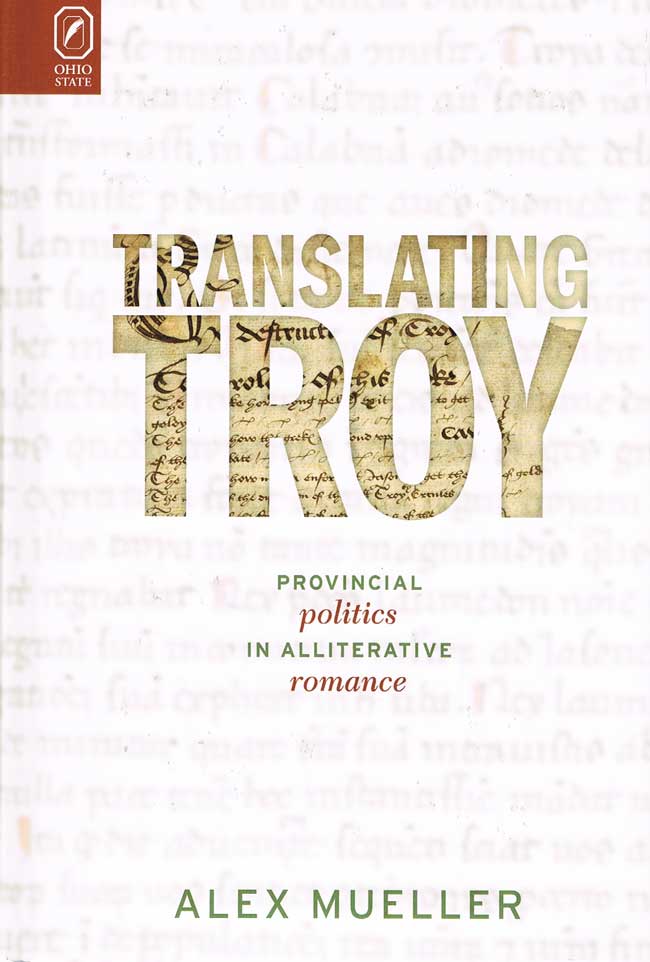Translating TroyProvincial Politics in Alliterative RomanceAlex MuellerInterventions: New Studies in Medieval Culture |
 3/26/2013 Literary Criticism/ 253 pp. 6x9  $69.95 cloth 978-0-8142-1221-9 Add cloth to shopping cart $14.95 CD 978-0-8142-9322-5 Add CD to shopping cart Shopping Cart Instructions Review/Change Shopping Cart & Check-out | |||
|
Explore More Guido delle Colonne’s Historia Destructionis Troiae, Cod. Bodmer 78, Cologny |
“Translating Troy makes important arguments about the politics and import of texts of the Alliterative Revival— these romances are of increasing importance to our understanding of the period, particularly with regard to the nature of regionalism and regional resistance in the fourteenth and fifteenth centuries. Mueller’s claim regarding the importance and popularity of Guido delle Colonne’s Historia Destructionis Troiae is as compelling as it is important. Answering a number of questions about particular texts, Mueller’s study also re-situates our understanding of the Troy tradition in crucial ways.” —Patricia Clare Ingham, Indiana University “Alex Mueller’s Translating Troy consists of a carefully argued, thoroughly supported study of four alliterative romances inspired by the skeptical anti-imperialism of Guido delle Colonne’s narrative of Troy. Mueller’s searching analysis of these four alliterative, Guidonian romances will have a profound impact on Middle English studies and will surely be a significant contribution to the literary historical study of late-medieval Britain.” —Randy P. Schiff, author of Revivalist Fantasy: Verse and Nationalist Literary History For Geoffrey Chaucer and many of his contemporaries, the literary life of England began in ancient Troy. In Translating Troy: Provincial Politics in Alliterative Romance, Alex Mueller explores Middle English alliterative romances that challenge this genealogical fantasy and decentralize Troy as the eastern origin of western authority. Until the sixteenth century, the Trojans were widely believed to be the ancestors of the English people: the destruction of Troy led to the birth of Rome and eventually the foundation of a New Troy in Britain. In the fourteenth and fifteenth centuries, the fall of Troy was such a popular subject that the production of Troy books became an industry in itself. Influenced by the skeptical historiography of Guido delle Colonne, the provincial romances Mueller investigates resist the pervasive fashion to envision England as the inheritor of imperial power. Translating their Latin sources into concussive verse well suited for the rhythm, pace, and spectacular violence of battle, the poems belie enthusiasm about Trojan ancestry through critiques of the chivalric practices cherished by the metropolitan nobility. The consistency of their metrical choice, militaristic subjects, and anti-imperialistic sentiment suggest that these northern romances emerged from a Trojan word-hoard of provincial skepticism toward aristocratic claims to sovereignty. Alex Mueller is assistant professor of English at the University of Massachusetts Boston. | |||

